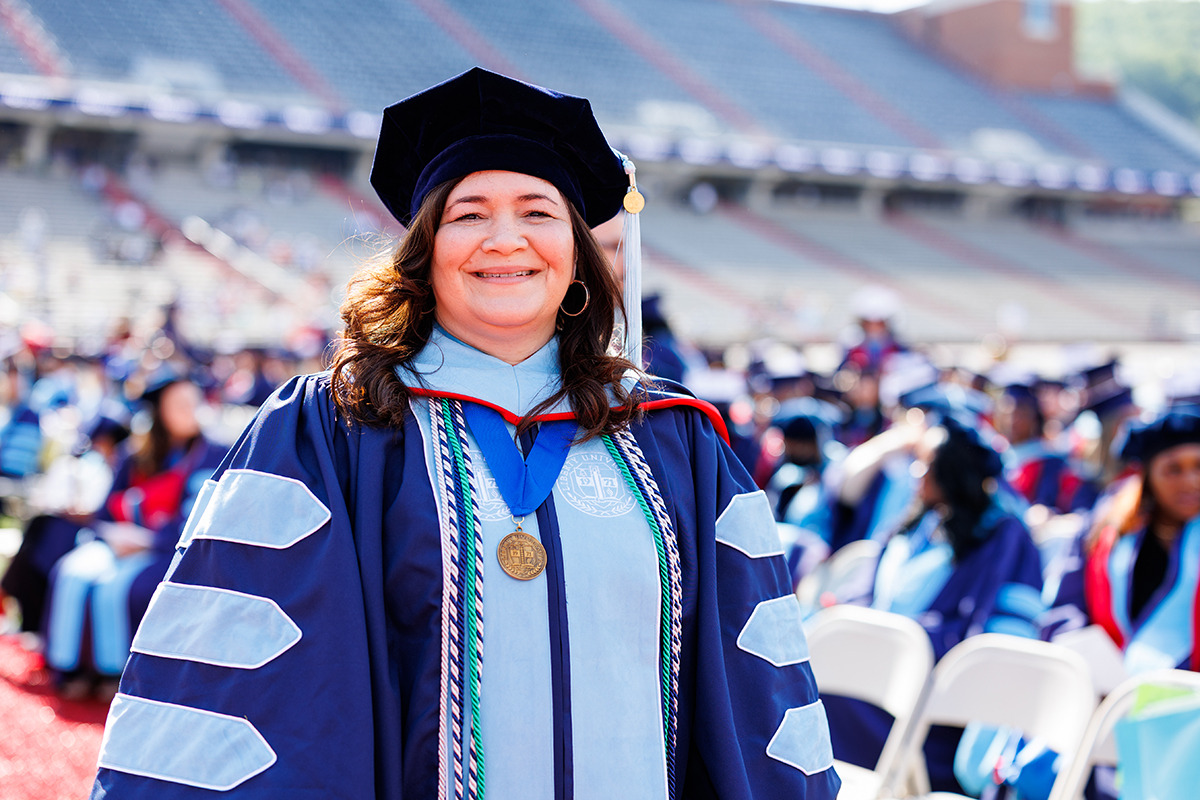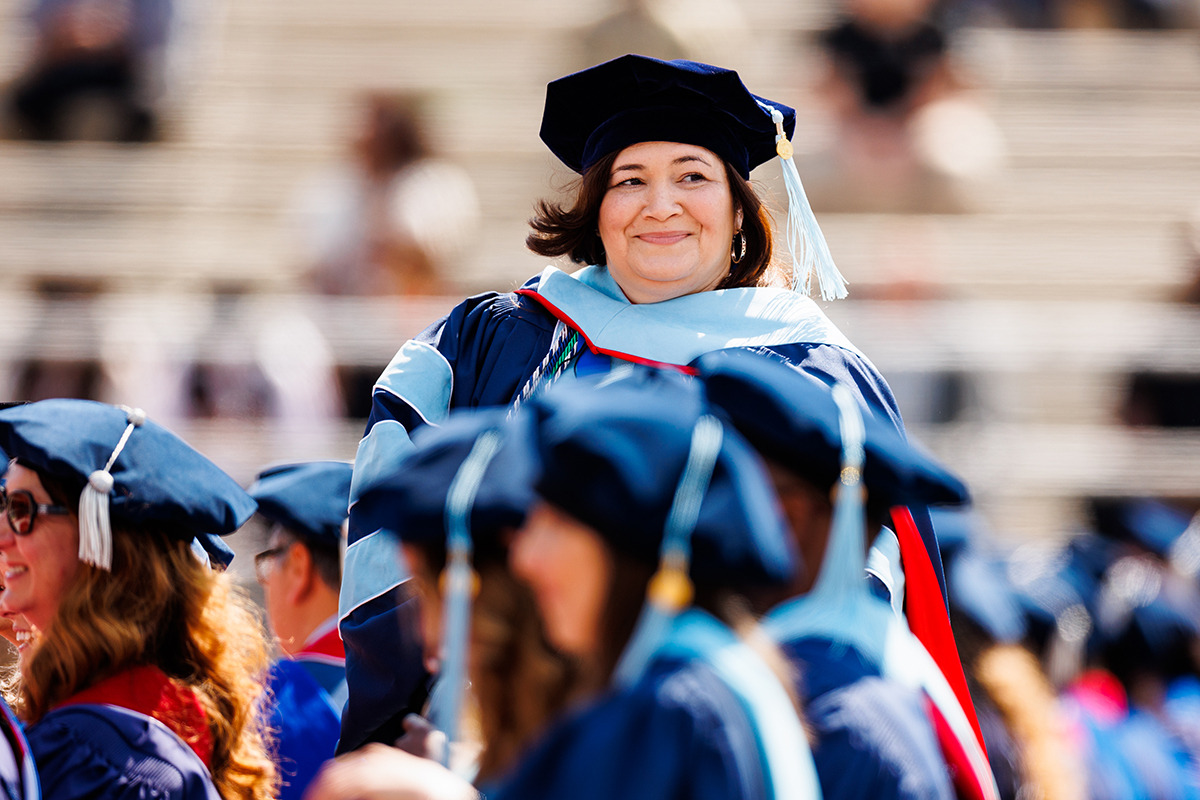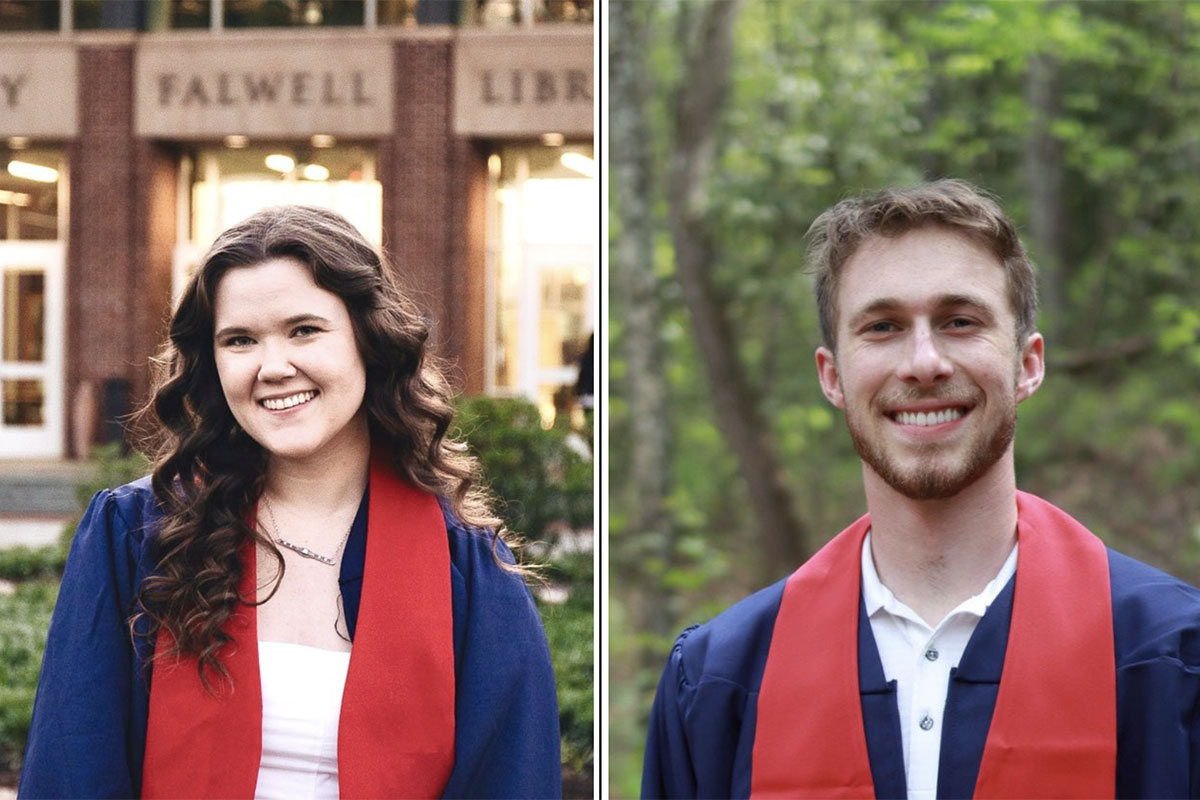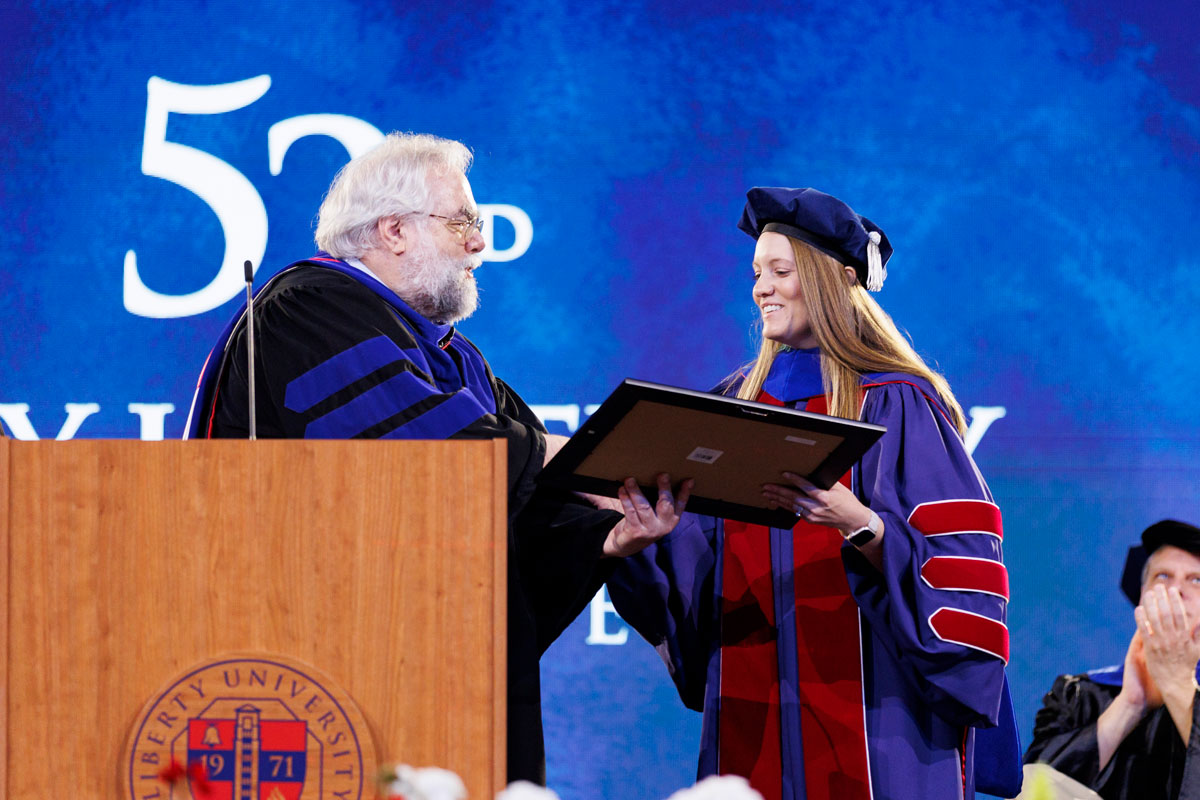Search News Archives
Filter News Articles
Additional Navigation
Counseling graduate studies mental health treatment for elementary students
May 11, 2023 : By Ryan Klinker - Office of Communications & Public Engagement

As a counselor for an elementary school in the Atlanta area, Dionna Doneghy (’23) has helped children experiencing various forms of trauma, including trauma that most people aren’t aware can affect the younger population, such as thoughts of suicide.
Doneghy completed her dissertation, “Finding the Missing Pieces: A Phenomenological Study of Elementary Teachers’ Experiences with Student Suicidality,” for the Doctor of Education in Community Care and Counseling — Traumatology. She is one of over 10,000 graduates at Liberty’s Commencement, May 11-13.
Her studies helped her gain more insight into how teachers and school counselors can help intervene.
“I’d been noticing an uptick in suicidal ideation in the students at my elementary school,” she said. “Once I performed the empirical research on suicidality, I saw that the empirical research didn’t have much information about young children, and it also had no information about the perspective of the teachers regarding their actual experiences with students’ suicidality.”
“If we can go ahead and pinpoint some of the problems and target those areas, maybe we can inhibit some of those behaviors and prevent them,” she added. “We can give elementary students the coping skills and the self-regulation strategies that they need before they get to middle school and high school.”
She said she chose to study the perspective of teachers because of the amount of time they spend with their students.
“I thought about how eye-opening it could be to explore the unique lived experiences of elementary teachers with student suicide, especially since it is an untapped area of research,” she said. “(Teachers) have the students with them longer during the day than with anyone else, other than maybe their families. I wanted to get their perceptions of this phenomenon and then determine whether their experiences were aligned with current literature. I also was interested in hearing what additional insights they might have that could contribute to the present literature.”
 In analyzing the data, Donaghy found three themes and corresponding subthemes. The first theme, “Student Stressors and Adverse Experiences,” described personal characteristics, as well as environmental and psychosocial factors, like trauma history, mental illness/mental health conditions (either personal or family history), emotional dysregulation, and family dysfunction. Many of the teachers she studied said they felt ill prepared to identify students at risk of suicide and/or assist them and expressed a desire for training in prevention/intervention. They also felt that they lacked the time needed to focus on student mental health due to demands such as grading, lesson planning, frequent meetings, and disruptive, and externalizing behaviors in the classroom.
In analyzing the data, Donaghy found three themes and corresponding subthemes. The first theme, “Student Stressors and Adverse Experiences,” described personal characteristics, as well as environmental and psychosocial factors, like trauma history, mental illness/mental health conditions (either personal or family history), emotional dysregulation, and family dysfunction. Many of the teachers she studied said they felt ill prepared to identify students at risk of suicide and/or assist them and expressed a desire for training in prevention/intervention. They also felt that they lacked the time needed to focus on student mental health due to demands such as grading, lesson planning, frequent meetings, and disruptive, and externalizing behaviors in the classroom.
Doneghy said she plans to expand this research and publish her work in an academic journal. She also expressed interest in creating presentations and professional development opportunities for school personnel to better recognize the signs of suicide and mental health concerns in children.
Doneghy earned her undergraduate degree in psychology from Birmingham Southern College, a master’s degree in mental health from Johns Hopkins University, and a master’s in school counseling from the University of the Southwest in New Mexico. When it came to finding a doctoral program for advancing her education and career, Doneghy said she chose Liberty due to its reputation of high academic quality and outspoken respect for the United States military, of which her husband is a veteran.
“It’s been great for me,” Doneghy said of her experience in the program. “I have to say I’ve gained a wealth of knowledge in the field of counseling, especially regarding trauma. I think it’s going to allow me to better serve my students in the field that I work in currently, as well as empower educators with the knowledge to hopefully recognize and prevent suicidal behavior in their students.”
Throughout her time in the program, Doneghy said her professors strengthened her in different aspects of research and data analysis.
“All of my professors had an impact on my growth as a doctoral student at Liberty,” she said. “They were very encouraging, and they were also tough when they needed to be to bring out our best work.”
Like many of the nearly 24,000 Liberty graduates who earned their degrees online, Doneghy will set foot on Liberty’s campus for the first time at Commencement. She said she’s looking forward to visiting Lynchburg and celebrating her accomplishment.
“God has guided me the whole way, and I know that I’ve felt His hand on me throughout this entire journey,” she said. “It’s been a blessing, it really has.”


